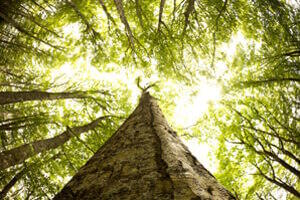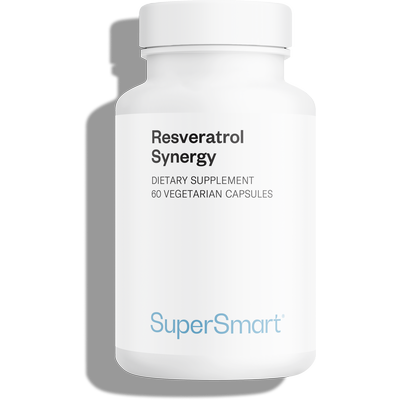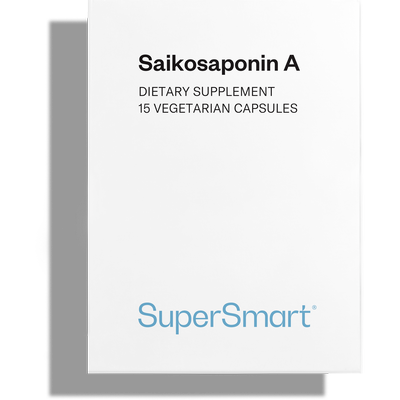03-11-2016
Activate your anti-cancer genes
 Studies on mice have shown that activating certain genes may prolong their life expectancy by 45%.
Studies on mice have shown that activating certain genes may prolong their life expectancy by 45%.
The genes thought to be responsible for this extension in lifespan are present - and play identical roles - in humans too.
Which means that, under certain conditions, humans could live to be almost 125 years old.
Preventing the onset of cancer
This strategy requires a dual-pronged approach:-
1) preventing the development of cancerous tumours
2) delaying the ageing process
Manuel Serrano, a scientist at the Spanish National Cancer Research Centre (CNIO), reported at a conference that “activating the P53 and P16 genes in mice reduces the incidence of cancer to almost zero” ..
I will explain how you can activate these genes.
But enjoying a long life takes more than just preventing the development of cancer. You also need to slow down the ageing process.
Extending lifespan
A number of studies have already demonstrated how it is possible to extend lifespan in various species, including mammals, by manipulating specific genes. To date, however, these techniques have involved modification at the embryo stage to definitively alter genetic heritage, an approach which is clearly not feasible in humans.However, another team at the Spanish National Cancer Research Centre, led by Maria Blasco1, has shown that mouse lifespan can be extended by the application in adult life of a single treatment which acts directly on the adult animal’s genes. This treatment has been shown to be safe and effective in mice.
The results of this study were published in the medical journalEMBO Molecular Medicine. In collaboration with Eduard Ayuso and Fatima Bosch of the Centre of Animal Biotechnology and Gene Therapy at the Universitat Autònoma de Barcelona (UAB), the CNIO team treated mice aged one and two years old, and observed a “rejuvenating” effect in both groups2.
Mice treated at the age of one lived an average 24% longer, and those treated at the age of two, 13% longer. The treatment also produced a noticeable improvement in the animals’ health, delaying the onset of age-related diseases such as osteoporosis, insulin resistance and problems with neuromuscular coordination.
This gene therapy involved the introduction of new genes from telomerase enzymes. Telomerase repairs telomeres - the tips of chromosomes - which become shorter with each cell division. It thus effectively resets the biological clock by delaying cell ageing and apoptosis (cell death).
According to the authors, “this study shows it is possible to develop an anti-ageing gene therapy that acts on telomerase, without increasing the incidence of cancer”.
Stimulating your telomerase and tumour suppressor genes naturally
So activating tumour suppressor genes and telomerase can now be achieved in mice via gene therapy.And it may perhaps soon be possible to do so in humans, though for the moment, we don’t yet know.
However, natural products are available which may help achieve the same effects:
-
- bupleurum (Bupleurum falcatum), a plant from the Apiaceae family, canactivate the P16 tumour suppressor gene ;
- resveratrol, a protective compound produced by red grapes (and certain other plants) as a defence against parasites, activates the P53 gene.
- Astragaloside IV, a compound found in minute quantities in astragalus root (Astragalus membranaceus), and used in traditional Chinese medicine, is specifically able to activate telomerase and slow down telomere shortening, thus extending cell lifespan. .
Bupleurum falcatum to activate the P16 gene
Bupleurum falcatum is commonly considered as a cellular detoxifying agent for fighting chronic infections and inflammatory conditions (particularly hepatitis).Bupleurum has recently seen its popularity increase due to favourable results achieved in cancer treatment. Its active principles are the saikosaponins A, B, C and D.
Of these, it is the A form, a triterpenoid glycoside, that appears to be of particular interest though it is also extremely rare and expensive - you would need to ingest 50g of Bupleurum to obtain 4mg of saikosaponin A. This new plant substance has thus been specifically selected and isolated in order to activate the P16 tumour suppressor gene.
A number of studies have demonstrated the immune-suppressant effects of saikosaponin A3. In a dose-dependent manner, it has been shown to significantly inhibit the proliferation and activation of T cells and induce apoptosis of cancer cells via the mitochondrial pathway4.
Chinese researchers have also observed that mice with various forms of cancer whose diet had been supplemented with saikosaponin A lived longer than healthy mice!!
This encouraging animal research has already led to the development of treatments for human application in the oncology departments of a number of Chinese hospitals.
Resveratrol to activate the P53 gene
Resveratrol and its derivatives activate the P53 gene5, 6. Resveratrol is a protective compound produced by red grapes (and some other plants) as protection against parasites.Researchers at Harvard Medical School and Biomol research laboratories have demonstrated that resveratrol activates a “longevity gene” in yeast, increasing its lifespan by 80%. It works in the same way as calorie restriction (the only scientifically-proven way of increasing longevity) by activating “sirtuin” genes (SIR or silent information regulator proteins)7. Yeast treated with resveratrol lived for an average of 38 generations compared with only 19 for untreated yeast.
An Austrian study found that resveratrol prevented some forms of cancer from metastasizing into bones. Other research has shown that in some cases, it enhances the positive effects of chemotherapy. Unlike many drugs, resveratrol protects, rather than destroys, healthy cells.
It should be noted, however, that the 8-10 mg per litre of resveratrol that used to be present in red wine has almost disappeared due to widespread use of pesticides. Fortunately, you can buy resveratrol extracted directly from organically-grown red grapes where the natural balance of active compounds - polyphenols, flavonoids, anthocyanins and oligoproanthocyanins (OPCs) - has been maintained.
Astragaloside IV to activate telomerase
The plant Astragaloside IV is present in minute quantities in astragalus root (Astragalus membranaceus). Well-known in traditional Chinese medicine, this plant has been prescribed for centuries as a tonic for the sick, to prevent weakness and infection.More recently, research has identified that astragaloside IV has a highly specific property whereby it can activate telomerase and slow down the telomere-shortening process, thus extending cell lifespan.
A recently-published 12-month pilot study examined the effects of a telomerase-activating extract of Astragalus membranaceus, developed and patented by Geron Corporation. Participants received a pack of nutritional supplements in addition to the telomerase activator.
When telomerase activity was measured in cell cultures, the patented extract was shown to moderately activate telomerase in keratinocytes, fibroblasts and immune cells.
In a sub-group of participants, distribution of telomere length in leucocytes was measured at the beginning of the study and again after 12 months. While average telomere length did not increase, a significant reduction in the percentage of short telomeres was observed.
Protocol
Although it is still too soon to set a strict administration protocol, it is reasonable to recommend:-
- a daily dose of 40mg of resveratrol
-a daily dose of 4mg of saikosaponin A in the evening, and astragaloside IV in the morning.
------------------------------
1-Maria A. Blasco, Bruno M., Bernardes de Jesus : CNIO scientists successfully test the first gene therapy against ageing‐associated decline. Fundación Centro Nacional de Investigaciones oncológicas Carlos III.
2-http://www.sciencedaily.com/releases/2012/05/120514204050.htm
3-Wu W. S., Hsu H. Y. : Involvement of p-15(INK4b) and p-16(INK4a) gene expression in saikosaponin A and TPA-induced growth inhibition of HepG2 cells. Biochemical and biophysical research communications. Biochem Biophys. Res. Commun. 2001 Jul.; 13;285(2):183-7.
Yano H., Mizoguchi A., Fukuda K., Haramaki M., Ogasawara S., Momosaki S., Kojiro M. The herbal medicine sho-saiko-to inhibits proliferation of cancer cell lines by inducing apoptosis and arrest at the G0/G1 phase. Cancer research. Cancer Res.1994 Jan. 15;54(2): 448-54.
4-Sun Y., Cai T. T., Zhou X. B., Xu Q. : Saikosaponin A inhibits the proliferation and activation of T cells through cell cycle arrest and induction of apoptosis. International immunopharmacology. Int. Immunopharmacol. 2009 Jul.; 9(7-8):978-83. doi: 10.1016/j.intimp.2009.04.006. Epub 2009 Apr 16.
5-Carcinogenesis (1999) 20 (2): 237-242. doi: 10.1093/carcin/20.2.237
6-Life Sciences, Volume 72, Issue 1, 22 November 2002, Pages 23–34
7-Howitz K.T. et al. Small molecule activators of sirtuins extend saccharomyces cerevisiae lifespan. Nature. 2003 Sep 11; 425(6954): 191-6.
8-Ulsperger E et al, resvératrol pretreatment desensitises AHTO-7 human osteoblasts to growth stimulation in response to carcinoma cell supermatants. Intl J Oncol, 1999;15:955-99
9-Harley Calvin B. et al., A natural product telomerase activator as part of a health maintenance program. Rejuvenation Research. Online ahead of print: September 7, 2010. Doi: 10.1089/rej.2010.1085.
Order the nutrients mentioned in this article

Improves biomarkers of aging and promotes expression of longevity genes
www.supersmart.comFurther reading
21-08-2019
Researchers at Exeter University have succeeded in rejuvenating senescent cells in the laboratory 1 using a molecule already known for its effects on longevity: resveratrol....
Read more25-07-2016
Research into human longevity has taken a historic step forward.Though unknown to Western media, Russian researchers have developed a substance capable of extending lifespan by...
Read more21-08-2019
The fight against ageing continues. Researchers working for a start-up biotech company have discovered the beneficial effects of urolithin A 1 , a substance produced...
Read more© 1997-2025 Fondation pour le Libre Choix
All rights reserved
All rights reserved
Free
Thank you for visiting our site. Before you go
REGISTER WITHClub SuperSmart
And take advantage
of exclusive benefits:
of exclusive benefits:
- Free: our weekly science-based newsletter "Nutranews"
- Special offers for club members only



















